Resources
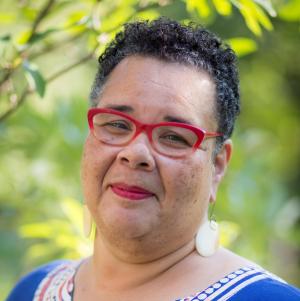
Justice is one of those ideas that has captured our imaginations for generation upon generation; yet it is still a contested notion. Collectively, systemic racism, sexism, classism, homophobia, white supremacy, and a judicial system that is lenient on “white collar/white male” crime, while vengeful upon the poor and minoritized people, provide ample evidence that justice for some is not justice for all. For these and other reasons, I need my students to be articulate about the notion of justice. It is not enough to “believe in” the idea. It is not enough to agree with it intuitively or “in your heart.” Education as a practice of freedom, as a practice of transgression, as a practice of re-humanization, is the theory I teach in my graduate level introductory course. This course insists that the ability to articulate the theories of justice, regardless of personal experience or personal belief, is a pedagogical necessity. It is the rare student who enters my introductory course able to speak the language of liberative pedagogy or to talk about the connection between education and social transformation. This is why they are learners–there are important things which they do not yet know and which they cannot articulate, but which we can teach them. My pedagogy of justice is not so interested in teaching skills of “critical thinking.” Most of my students have families, are gainfully employed, and have responsibilities in church as well as community. Many own their own businesses, provide support for several generations in and beyond their households, and are looking to religious leadership as a second or even third career. By the time they reach my “Introduction to Educational Ministries” course they have demonstrated considerable ability to think critically, to problem solve, to engage successfully in tactics of survival. Rather than “critical thinking,” I want to teach my adult learners methods of power analysis necessary for the summoning of moral courage in a society steeped in body politics, violence, and systemic hatreds. I want my students to be praxis thinkers, able to analyze injustice and articulate justice in an unjust society. They must be able, in their own communal context, to analyze white supremacy and patriarchy in its myriad expressions. The healing of their community and the restructuring for a more equitable society depends upon their ability to articulate justice. What I stress in my course is the ability to articulate what justice actually entails in the world. Simply feeling it, believing it, desiring it, hoping for it–just won’t do. The power is in speaking it. Have you ever known something but could not articulate it? You thought you understood it, but did not know the words, the vocabulary, the way to convey the basic concepts with depth? Sometimes, as a consequence of complex experiences, you may find your ability to describe the learnings of that experience to be limited or incomplete. In order to give full voice to your experience, as well as the insights gained from that experience, drawing on the collaborative power that emerges from sustained conversations is a key. Equally, having a firm grasp upon basic theories of justice making and moral courage are imperative. Being able to articulate theories of justice provides a hermeneutical mirror for analysis of, and meaning-making from personal experiences and perspectives. Finding ways to assist my students with articulating theory and helping them order the learnings of personal experience entails exposure to new vocabulary and interrogation of basic concepts. Personal experience can provide new insights, new understanding of the age-old problem of injustice when communal-reflexive habits are incorporated as a way to animate and elucidate theory. Because, of course, theory and practice are two-sides of the same coin. On the first day of the course, then reinforced in each subsequent session, I tell my students to pay attention to the argument of the authors we are reading. The focus of reading is not so much deciding if they “like it or not,” but noticing the authors’ use of vocabulary, basic concepts, and illustrative examples and narratives. I tell them to learn these funky words and use them in and out of class. Once new vocabulary is mastered, the ability to conceive the basic concepts and the ways these concepts create the theory is more evident. I tell them to be able to map the basic concepts of the theory because all basic concepts do not function in the same way to create the theory. When they look puzzled, I teach them concept mapping. Learning to play with theory for praxis is a mighty challenge. I have, over the many years, devised this mid-term learning exercise to assist my students in articulating the basic concepts of the theory we study: Step One - I email, before the class session, and instruct my students to be able to access in class all the readings, all their notes taken, and all the assignments graded thus far. In other words, bring all you stuff! Step Two - Once we are gathered in class, I tell them to get out all of these materials and base any group participation upon our conversation since day one of our class. In other words, do not talk off the top of your head, focus upon what we have been discussing all semester. Step Three - I divide the class into small groups. I inform the groups they have an hour to collaboratively write 10 basic concepts of the theory of liberative pedagogy. When the anxiety in the room spikes, I inform them that they are to use all the materials they brought to class. Sometimes the anxiety lowers and sometimes not. Step Four - I say, “On your mark–GO!” I do not tell them it is a mid-term exam, but it is. Step Five - While the groups are working to articulate their lists of basic concepts, my teaching assistant sets-up the computer so there is a blank page projected on the screen for all to see. The teaching assistant, during the report-in by the small groups, will record each of the concepts I approve to be written on our class list. Step Six - After the hour, I reconvene the groups for our “round-robin report-in.” Our aim is to take the lists from all the groups and create one list of basic concepts that we can ratify as a class. We refine the concepts during the group report-in through our conversation and through my editing. A member from one of the small groups reads aloud one basic concept from the list they created when it is their turn. Groups will have multiple turns but will report-in only one concept at a time. If, when the one concept is shared aloud, the concept sounds reasonable and resonates with our collective understanding (and my listening ear), then the teaching assistant records the draft of the concept as read for all to see. Once that concept is typed on the screen, I ask if any other group has a similar concept. If so, we use the other group’s work to wordsmith the concept on the screen until it is clear and strong. If not, we wordsmith as a class. Once a concept is refined to my satisfaction, we move to the next group to read aloud one basic concept from their list. We continue with the “round-robin report-in” until all the groups have exhausted all the concepts they recorded during their small group collaboration and until we have one common, sound list of basic concepts refined on the screen. This takes about an hour. Step Seven - I provide a list of basic concepts from a previous course as a final way to strengthen our collective work. I invite the class to look through the list in order to add, reword, or strengthen the new list we have just drafted. There are always additions, edits, and re-wording to strengthen the list we have just created. Students like seeing the work of other classes as it lets them know the complexity of the task of articulation. Step Eight - I ask, referring to our list on the screen, “Does this list of basic concepts articulate the theory we are studying?” If yes, we celebrate our hard work. If no, we continue to work until we are satisfied with our articulation of basic concepts of emancipatory pedagogy. Step Nine - I email our list of basic concepts to each student. Of course, my students’ ability to excel at this exercise varies from class to class. Most fascinating is that, from year to year, no two lists of basic concepts have ever been the same while still capturing the crux of the theory. Every class has found their own way of articulating, from their own unique perspectives and experiences, the basic concepts. I am not looking for an essentialist or universal list of basic concepts. I am looking for their rendition. We say a learner-centered education nurtures, kindles, and coaxes students into voice. With voice comes the responsibility of agency and service. Teaching toward voiced students is teaching the ability to speak articulately, eloquently, and intelligently about the issues of oppression, hegemony, violence and captivity–and not just passionately, without substance. Coming into voice is hindered by class sessions riddled with self-centered, pseudo-psychological moments of students filibustering through personal stories and anecdotes. Learner-centered teaching focuses upon the learner being able to articulate new ideas, new theories, new concepts, new vocabulary and hopefully, newly refined visions for a more just and equitable society.
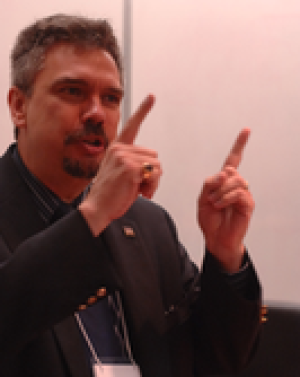
I am convinced that all eurocentric philosophical thought and movements – yes all – are oppressive to those who come from colonized spaces. When I contemplate every philosophical contribution made by the so-called Age of Enlightenment, it becomes obvious that the French Revolution’s battle cry for Liberté, Egalité, Fraternité was never meant for her future colonies in Vietnam or Algiers. Hegel’s entire endeavor for a historical truths rests on the presupposition of the superiority of the Europeans and the inferiority of non-whites. In his 1824 book, Vorlesungen über die Philosophie der Weltgeschichte, Northern Europe - specifically the German Spirit - is the Spirit of the new World whose aim becomes the realization of absolute Truth as the unlimited self-determination of Freedom, a Freedom which has as its own absolute form itself as its purport (341). Such a Freedom was never meant for the “inferior” in need of civilization and Christianization. Even the U.S. rhetorical end to our daily oath of “liberty and justice for all” was never meant to include those from African descent, nor their neighbors south of the border. The “all” in eurocentric philosophical thought just meant whites, definitely not her colonies or those among the colonized who followed their stolen raw material and cheap labor to the center of Empires. Abstract philosophical thought must be constructed to reconcile the quest for liberty and equality among whites with their purposeful exclusion of those whom they colonized. The issue is not so much hypocrisy on the part of the colonizer spewing rhetoric about liberty; but rather, philosophically justifying oppression through freedom-based language. The move to the abstract serves the crucial purpose of obscuring the economic need of dispossessing and disenfranchising the colonized and their descendants. Universal eurocentric celestial concepts of rights blinds the oppressed to the concrete feet-on-the-ground reality of oppression at the hands of such freedom loving whites. Over 125 years ago, José Martí saw the danger of adopting a eurocentric worldview detrimental to the existential intellectual space occupied by the colonized. He called the oppressed of the world to create a new way of thinking based on our indigeneity. To make our wine out of bananas (“Nuestro vino de plátano”) means such a wine would naturally be sweet. But if we instead make our wine out of the fruits of Europe and it becomes sour (“y si es agrio”), then we are stuck with it (“es nuestro vino”). Eurocentric philosophical thought not only sours our wine but also our teaching. To build liberative edifices on eurocentric philosophical foundations reproduces the same consequences as pouring new wines into old skins. Even our beloved liberation theological movements have, more often than not, looked toward their oppressors for means of expression. How much richer would our liberative thinking have been if we looked to our own original thinkers like Martí rather than the European liberal thinkers of the time? When those of us seeking a liberative pedagogical methodology rest upon eurocentric philosophical paradigms, we construct resistance on shifting sand, contributing to our own oppression. And worse, when we teach in our classrooms our resistance to eurocentric thought, regardless of how loud, fearless, and passionate we may be, we are undermining our students’ ability to bring about subsistent change. The difficult task before us who call ourselves liberative scholar-activists is how do we think new thoughts that are less a response, and more an indigenous radical worldview different from the normative philosophies which have historically justified our subservient place within society. True, we must learn the Eurocentric canon if we hope to obtain PhDs and be considered learned, even though our white colleagues need not bother with the discourses occurring on their margins. But rather than looking at the esteemed eurocentric thinkers who have historically written philosophies to remove us from humanity and the fruits of liberation, what would happen if we possessed the dexterity to teach what the children of the colonizers legitimized and normalized as well as a different worldview based on lo cotidiano - the every day of those purposely written off Hegel’s metaphysical dialectical history. To teach from the margins disabuses the regurgitation of foreign and deadly philosophical paradigms in favor of those which resonates with the least of these. Not solely to understand the world – as important as this may be, but also for its transformation.
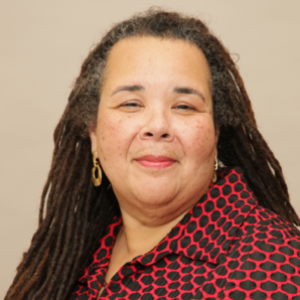
The car service arrived at my house. I grabbed my purse, suitcase, and briefcase and hurried out the door making sure it was locked behind me. As scheduled, we stopped to pick up a colleague who was also attending the conference in Toronto, Canada. Driving east on Highway 78 and almost to Newark International Airport, I gasped. My passport was still at home. My colleague asked if I wanted to go back and get it. I looked at my watch and said, “No.” Going back would likely mean we both would miss the flight. Once at the ticket counter, I handed the gate agent my ticket and driver’s license. I told him I was on my way to Toronto. He looked at my ticket to confirm an international destination. He asked me for my passport. I told him, in my most contrite voice, that I had left my passport on my dining room table. He stopped himself from rolling his eyes, but a faint sigh of annoyance slipped through his otherwise professional demeanor. Still, in a mode of apology, I asked, “Surely there is some other identification that I can use to cross the border . . . . Not everybody has a passport!” Without looking up from his terminal, he informed me he would accept a U.S. Voter Identification Card. “EUREKA!” I thought and “EEEEEeeeee!!!!!” came out of my mouth. I gleefully reached into my purse, found my wallet, located my voter registration card, and with the pride of the ancestors, I extended my arm to hand it to the ticketing agent. My flurry of emotion had gotten his attention, and he looked up from his terminal and at me. When I handed him the card, he stared in disbelief. Slowly he reached for the worn card, examined it suspiciously, and was flabbergasted. He went from doubt to shock with the reading of the card. He raised my card above his head and called to his left and then to his right—to the other agents at neighboring terminals—“Someone has it! Someone actually has a voter registration card!” The other agents reacted with nods of approval and surprise. The African-American gentleman processed my ticket and gave me a boarding pass. He said to me while handing back my voter card, “Nobody ever has these.” I thanked him for telling me of the alternative ID and asked if I would have any trouble getting back into the USA from Canada with only a voter registration card as ID. He said, “It’s the law. They have to let you back home.” My voter registration card has been in my wallet since 1980 – age 18. I carry the card as a symbol of ancestral work and sacrifice that created the democratic republic, the United States of America. The free labor of my African enslaved people provided ease in the creation of a democracy for those white men who reaped untold financial benefits and whose families still benefit from this legacy of blood and dehumanization. I carry my card to mark the progress of Black women. Through the leadership of such women as Barbara Jordan, Sojourner Truth, and Madam C. J. Walker, we are surviving. The card reminds me that in 1994, the brothers and sisters in South Africa seized democratic rights. I cried when after a three-day journey by wheel barrel—with grandchildren taking turns pushing—the grandmother cast her vote for Nelson Mandela as president. I cried because so many grand-women did not have wheel barrels for transportation to the polls. Lest my repletion become hollow romantic recollection and foolish sentimentality, I admit that I would have, even in 2002, known that my voter ID would allow me to cross the US/Canada border. Welding the power of democracy means knowledge of my rights as well as voicing my dissent when my rights and the rights of others are challenged, and even taken. The politicians and the system that benefits from my not knowing my rights must be challenged and dismantled. Undoubtedly, the recent executive orders by the newly elected president that would have banned Muslim brothers and sisters from entering the United States was stopped by mobilized voters. Unquestionably, the House and House Leader Paul Ryan, on March 24th, canceled their vote to repeal and replace the Affordable Care Act due to the pressure of grassroots efforts by churches, synagogues, and mosques; by grassroots advocacy organizations like Black Lives Matter and Indivisible; and by those Republicans, likely voters for President Trump, who felt betrayed when the bill would shrink Medicaid. With widespread acts of protest and resistance in the first hundred days of the presidency of #45, the complacency of the American voter has been shed. It is, for voters, an exciting and dangerous time in democracy. We are coming to the realization (again!) that liberty depends upon a voiced constituency. Without a voiced constituency, we have only ourselves to blame for the creation of a dictator as president. Democracy is not in the DNA of the United States. Instead, democracy is one of the most powerful ideas on earth and each generation must make the decision to doggedly pursue this profound belief or not. Classrooms hold the possibility of being the invaluable spaces where the idea of democracy is re-inscribed on every generation. While I do not believe classrooms are in-and-of-themselves democratic spaces, I do subscribe to the view that classrooms are training grounds for learning to use the spectrum of voices needed for our flourishing democracy. Our students must become border-crossing sojourners able to discern what is right and just. The classroom is where informed and thoughtful citizens should be shaped, constituted, and inspired for the work of justice. Classrooms are the spaces to cultivate the voices that would challenge the oppressions that have a stranglehold on our democracy. What are the rights of students in your institution? By what means are the rights of students known and owned by students? How do these rights enter into the course design for formation and accountability? What would it mean to discuss the rights of students in the classroom, and then juxtapose those rights and responsibilities with those of the local and national democratic system? In what ways does a banking system approach to teaching truncate citizenship? In what ways does a banking system approach contribute to a voiceless democratic constituency? Which pedagogies prepare students for full participation in democracy? What would it mean to assess all introductory courses to discover the kinds of voice students are expected to develop and utilize through class participation and assignments? What would it take to expand the repertoire of voices developed across the introductory courses? What would it mean to raise the awareness of faculty concerning the ways the U.S. democratic system affects international students and recently immigrated students? In what ways can faculty better support international students and recent immigrants through their course design?
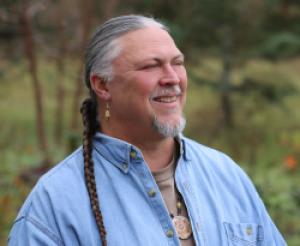
Allow me to be honest. There are few things in my job that I dislike more than having a conversation with someone who is feigning objectivity or neutrality. I call it academic pretense. I cherish conversations when people speak from their hearts, even if I disagree with them. This holds true as well in my collaborative learning gatherings (aka co-learning gatherings, aka the classroom). Over the years, I have learned to face a reality in my own life, namely, there are few areas in which I have no opinions or, at least, have no leanings. If you tell me you are different, no offense, but if you are a fully engaged person I probably won’t believe you. Try as we may to be neutral, as engaged educators who regularly integrate our subjects of expertise with everything occurring around us, we all have leanings and assumptions concerning a wide-range of topics. Professing to be neutral, when in fact, we are not, endangers us by moving difficult conversations to the abstract and impersonal world of the ethereal, often leading to conversations that lack personal investment. How well can we learn if we are not invested in an honest process? I have found that most learning experiences “stick” best when we bring not just knowledge, but our own truth and experience to the conversation. The type of conversation I am suggesting is risky business in the sense that when we put ourselves “out on a limb,” mistakes will be made, feelings can be hurt, and positions may inevitably need to be re-directed and corrected--even if that corrective trajectory reaches farther in the future than we envision. Dangerous, yes. But, I think opportunities for real education are worth the risks. How did I come to a place of partiality for “risky conversations?” My own rough, street-wise childhood taught me to observe everything around me carefully; to assess present threats/concerns and size-up what is really happening underneath the surface of any given conversation. Where I grew up, the dangers of not trusting my own instincts could have grave, unforgiving and intractable consequences. But, as much as I trust my gut instinct, life has also taught me that I can be wrong. Having begun my teaching career later in life, I often found myself asking, “How do I use these skills in an organic discussion setting that will benefit the whole academic learning process?” And, more importantly, how will this discussion make us all better human beings? Early on in my teaching career, I had to re-teach myself to trust my instincts. What I discovered was that those life skills learned on the streets and in the course of my life can work for me in the classroom. Why? Allowing myself to move freely with what I see happening around me organically shifts the classroom zeitgeist from a theoretical, abstract reality to a more organically-real, shared reality--achieving a deeper level of honesty. Contributive-learners (aka co-learners, aka students) respect and even desire the level of honesty I am suggesting. Even when discussions don’t work out as planned, co-learners respect my honest regrets and my apologies. In the meantime, whether the discussion was a “once-in-a-lifetime” hit or a “write-off,” I am still modeling a paradigm that is teaching them to trust their instincts and go with the organic, sacred moment. Hopefully, I am also modeling humility. I realize there is a great deal of valid concern over co-learning gathering safeness. Perhaps I view it differently than some of my colleagues. In my experience, safeness has nothing to do with the subject matter at hand. But rather, safeness is primarily about our respect for the sacredness of how we handle the conversation. With social norms changing at a rapid pace, especially in the current political climate, I am discovering that people are afraid to talk honestly with one another, although many, including myself at times, are willing to talk at one another. This type of climate only promotes isolationism, binary position taking, and we/they attitudes. Education is about people learning from each other. How can we learn if we cannot talk with one another honestly? Obviously, we can’t. But, back to the danger. What if it goes too far? More than once in our discussions, co-learners have taken their polemic too far and hurt another person’s feelings. At that point, if another co-learner does not stop the process, I stop the conversation and I do a check. Together as a group, we take two deep breaths and have a moment of silence. I then ask if we are still committed to the values of truth-seeking, mutual respect and the sacredness of the moment we are in?* Invariably, the person who crossed the line apologizes for their inability to express their thoughts without getting personal. Also, and this always surprises me, the offended person sometimes apologizes for taking it too personally. I encourage the group to share any thoughts about the process and then ask if we are ready to go further in the conversation or come back at another time? In many of our Native American traditions, we have a prayer that goes something like, “have pity/understanding on me Creator and remember I am just a human being.” The idea behind this prayer is that perfection is the enemy of attainment. We are all simply human beings, imperfect, but learning from our mistakes. Those mistakes make us human. And, being human, by “climbing out on a limb” in order to reach others, is the most spiritual state of being in which we may find ourselves. I wish I could say I have these sacred moments in every co-learning gathering, I do not. But, I do encourage those moments through risky honest conversations. And when those special moments come, the whole room feels like we have experienced something together that is truly sacred. Perhaps promoting knowledge among my co-learners in an atmosphere of sacred space, is the most important role I have as a scholar and a spiritual leader. *This exercise requires pre-teaching and mutual commitment to the process.
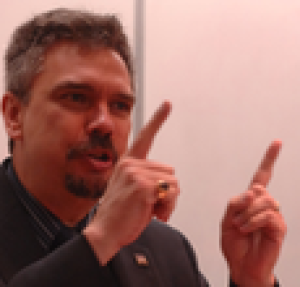
Since the start of the twentieth century, Christian religion scholars from the dominant culture - specifically ethicists – shifted their focus on how to live the Christian life via praxis toward the nature of ethics, wrestling more with abstract questions concerned with what is the common good and/or which virtues to cultivate. An attempt is made to understand the world, but lacking the ability to differentiate within disenfranchised communities between a “blink and a wink,” à la Geertz, their final analysis lacks gravitas. Teaching religion has become a process which [de]liberates not liberates. While abstract deliberations at times might prove sympathetic to the plight of the oppressed, the first casualty of abstract thought is rigorous academic discussions concerned with how to construct a more just social structure based on faith claims. A move to the abstract has, as my dissertation chair John Raines constantly reminded me, made the [class]room an appropriate name which signifies what occurs. This “room of class” becomes a space where students learn the class to which they belong, and how to assume the responsibilities associated with that class. During a visit to Yale, a student reminded me that while most seminaries train ministers for churches, Yale trains future bishops and superintendents. I doubt if such an attitude is limited to just one of the Ivies. Those with sufficient capital or connections to attend certain “rooms of class” on prestigious campuses are afforded opportunities normally denied to others (predominately students of color) who attend rooms at less prestigious locations. To occupy [class]rooms attached to power and privilege means that what is taught focuses more on the abstract as opposed to praxis designed to subvert power and privilege. To some degree, most eurocentric approaches to pedagogy at prestigious [class]rooms, more often than not, focus on explaining what is religious. But for those rooted in (or in solidarity with) disenfranchised communities relegated to the underside of prestigious [class]rooms, the question is not so much to determine some abstract understanding of religion, but rather, in the face of dehumanizing oppressive structures, to determine how people of faith adapt their actions to serve the least among us. Some professors who embrace a more liberative approach to pedagogy recognize there is no such thing as a neutral education system. Rather, students, depending on the [class]room they attend, are either conditioned to domesticate or be domesticated. A theological education serves to normalize and legitimize existing power structures within the faith community and society. A liberative pedagogy instead seeks to cultivate the student’s ability to find their own voice by creating an environment where collective and individual consciousness can be raised. The starting point is not some truth based on church doctrine or rational deliberation. Instead, the starting point is analyzing the situation faced by the dispossessed of our world and then reflecting with them theoretically, theologically, and hermeneutically to draw pastoral conclusion for actions to be taken. To function in the [class]room as a scholar-activist is usually to be dismissed, especially if one chooses not to engage in the methodologies acceptable to eurocentric thought. A division, unfortunately, exists where those concerned with the importance of maintaining their privileged space in [class]rooms oozing with power insist on lessons revolving around the thoughts and ideas of mainly dead white scholars (and those soon to join them) dismissing scholar-activist and the scholars from marginalized communities who inform their own thoughts. Simply peruse the reading lists on syllabi at prestigious [class]rooms to notice how scholars from disenfranchised communities are ignored – except, of course for that one elective class offered to check off the political correctness box. The [class]room space is protected with a call not to engage in the politics of our society, but instead to limit our thoughts to the polity that is the church, usually a homogenous church which more often than not misses the mark. The calling to be a scholar-activist is a recognition that by seeking solidarity with the stone rejected by stale builders regurgitating dead thoughts incapable of saving anyone, one finds themselves among the cornerstone of relevant, cutting-edge scholarship capable of revolutionizing society, literally turning the world upside-down.
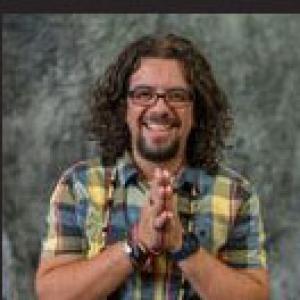
Cláudio Carvalhaes Associate Professor McCormick Theological Seminary In memory of William Klug and Ioan Petru Culianu Pedagogies are concerned with the study and practice of teaching and learning. Pedagogies are ways of organizing society as it has to do with ways of thinking and valuing life, shaping emotions, defining sense,

Nancy Lynne Westfield Associate Professor of Religious Education Drew Theological School So central to my identity is teaching that when I think of the highest honor, the highest appreciation – I think of my gratitude for those who have liberated me through their teaching. I aspire, then, to instill in

Cláudio Carvalhaes Associate Professor McCormick Theological Seminar I am delighted to be writing this blog with two other fantastic teachers I admire greatly: Lynne Westfield and Tat-siong Benny Liew. The Wabash Center has been a fantastic place that has empowered so many teachers, and has expanded resources and possibilities for